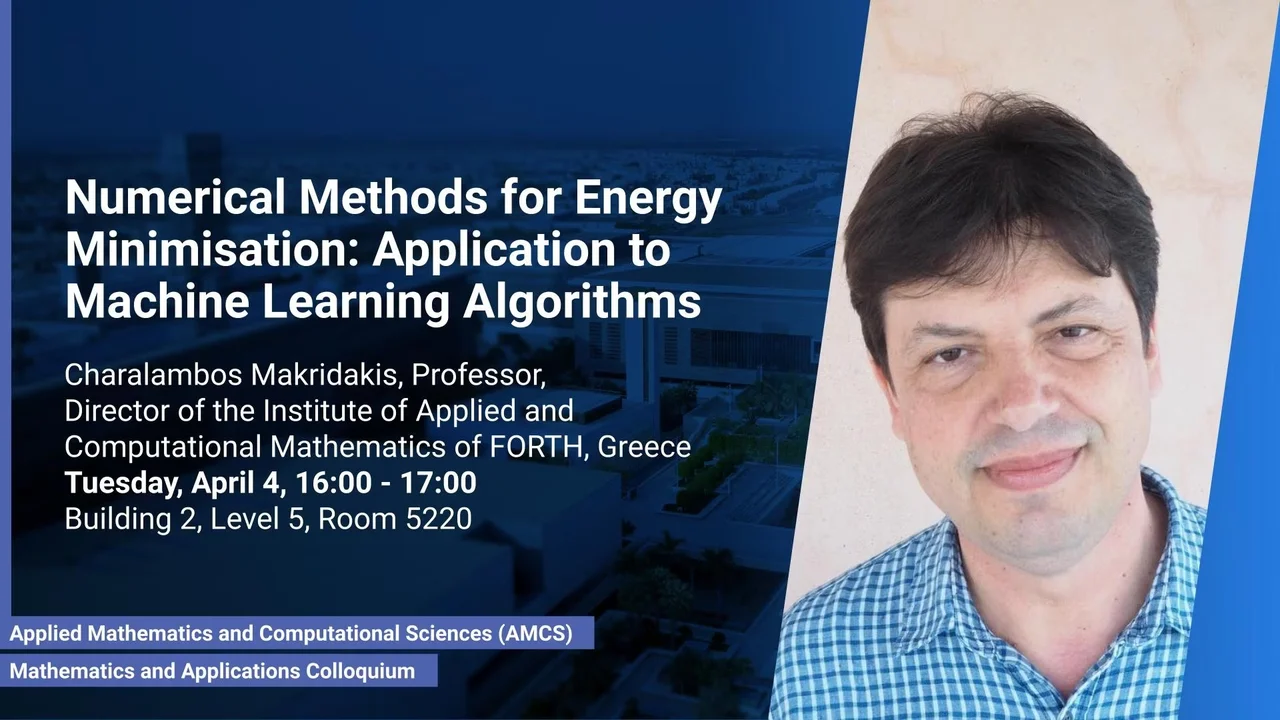
Numerical Methods for Energy Minimisation: Application to Machine Learning Algorithms
- Prof. Charalambos Makridakis, Director of the Institute of Applied and Computational Mathematics of FORTH, Greece
B2 L5 R5220
In this talk, we discuss problems and numerical methods arising in the calculus of variations and energy minimization. Among numerous applications, energy minimization is a core element of Machine Learning algorithms. Within the field of nonlinear PDEs, the calculus of variations has received a lot of attention from the analysis point of view. Although quite interesting and challenging, the numerical analysis of these problems is much less developed.
Overview
Abstract
In this talk, we discuss problems and numerical methods arising in the calculus of variations and energy minimization. Among numerous applications, energy minimization is a core element of Machine Learning algorithms. Within the field of nonlinear PDEs, the calculus of variations has received a lot of attention from the analysis point of view. Although quite interesting and challenging, the numerical analysis of these problems is much less developed. Key issues, related to the design of computational algorithms, their analysis, and selection criteria among possible solutions and minimizers remain largely unexplored. In this talk, we review certain related challenges and we present recent contributions to scheme design and analysis of such problems. We then discuss problems in the design and analysis of Machine Learning algorithms and explore connections and related challenges in text.
Brief Biography
Charalambos Makridakis is the Director of the Institute of Applied and Computational Mathematics of FORTH and holds the post of Professor of Numerical Analysis at the University of Crete and of Professor of Mathematics at the University of Sussex. He was a founding member of the Department of Applied Mathematics and of the Archimedes Center for Modelling, Analysis and Computation in Crete. He held short-term visiting posts at several universities and centres, including, the Institute for Pure and Applied Mathematics at UCLA, the University of Oxford, École Normale Superieure-Paris, CIRM-France, Institut Mittag-Leffler-Sweden and the University of Rennes.
His research focuses on computational methods for phenomena described by partial differential equations. In particular, he is currently working on adaptive methods for linear and nonlinear PDEs, modelling across scales, data-assisted computational modelling and scientific machine learning.
